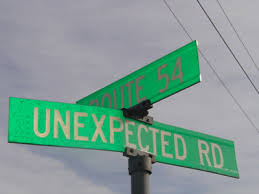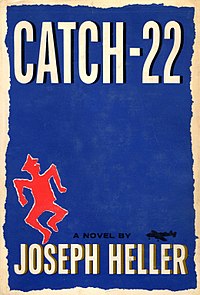Five Ways to Bump Up a Dull Essay

So you have a rough draft for one of your college essays.
You answered the prompt, read it many times and believe it’s a solid piece of writing.
And you may be right.
But even a solid essay can have one fatal flaw–-it’s boring.
The last thing you want is for the admissions person to toss your well-written essay in the “read later” pile. Here are a couple tips on how to bump it up:
1: Your introduction is the most important part of the essay, since it will either grab the reader or not.
Often, writers start by providing background on their topic and then get to the good stuff. Try to take out the first sentence, or two, and see if you can start farther into your story.
You might have to rewrite it a bit, but often you just don’t need that general background right at the beginning.
It’s best to switch it up and get right to your best example or point, and then provide the background later. If you can start with your most interesting examples or points, you will grab your reader all the faster, and that’s exactly what you want.
EXAMPLE: “When I was in high school, I played the violin in the school band. It was my favorite activity and I never missed a practice or performance. But one day, to my horror, I left my thousand-dollar violin on the school bus…”
You are building up to something exciting here. Try to start right at the heart of the action, the moment you left the violin and your reaction: “As I stepped off the bus, I had the vague feeling I was missing something.
But I was late for my orthodontist appointment, and ran to meet my friends. It was only later that night that it hit me: I left my thousand-dollar violin under the seat.” (And then you can go on to background your history playing the violin, etc.)
How Far Will You Go for A Great Essay Topic?
College Admissions Essays:
Don’t Try to Impress!
I just read an interesting article in the New York Times about how high school students are seeking out exotic trips, usually to foreign countries, mainly so they will have an intriguing topic for their college application essays.
(Article copied below)
I think these trips can be amazing, and that students learn a lot about other places, cultures and themselves.
Yes, GO!!
But if you are lucky enough to take one of these trips, the last thing I would do is plan it so you can write a snazzy college admissions essay.
I actually believe this approach can backfire.
An instant turn-off to essay readers is a student who is trying to impress them.
To avoid sounding over-privileged, students should look for essay topics that focus on everyday subjects, often called “mundane topics.”
Every time, the essay about a summer job where a student flipped pancakes at IHOP or washed dishes or sold shoes turned out so much better than the one where they went to Africa and lived in mud huts or helped farmers in Guatemala pull weeds.
For some reason, the more basic topics feel more authentic and are naturally more interesting.
And the writer comes across more humble, and likable, even.
That’s not to say that you can’t write a fine essay about a cool trip abroad.
My advice is that in your search for a topic, don’t consider the trip itself the topic. Instead, focus on one thing that happened on that trip.
Focus your essay on a specific experience, and just let the trip to the cool place be the background.
That way, the college folks see how adventuresome you are, but you can focus your essay on something more specific and meaningful. College admissions folks want to learn about how you think and what you value.
So it’s not so much where you were or did something, but what happened, how you handled it and what you learned in the process. That’s why scooping gelato, parking cars or walking dogs can make more interesting topics than your travels around Timbuktu.
Read my Jumpstart Guide to get started on your college admissions essay!
Lady Gaga as a Topic?
College Application Essays
How Far Out Should You Go?
Interesting post on the New York Times’ blog on college admissions, called The Choice.
The article was about whether to include your random interests–ranging from an obsession with Lady Gaga to riding 100 bus routes in Seattle to a collection of old National Geographic mags–in your college applications.
The post quotes college counselors advising students to include their “hidden extracurriculars” in the “interests” section, as though that’s really radical. Depending on the interest, I believe it could work best as an essay topic.
In my opinion, what you care about, and spend your time pursuing, tells more about you than recounting your mission trip to Costa Rica or the time you won the big cross country race.
If you write an essay about an offbeat topic (a passion, an obsession, a hobby…), chances are you not only will reveal a telling piece of your personality, but also show the reader how you think and what you value.
WARNING: Do not simply try to be cute, odd or quirky. Not matter how offbeat your topic, make sure your points remain serious and thoughtful. Show restraint.
Check out these 5 Top Tips on Finding Topics.
(Personally, I would avoid a sensational topic such as Lady Gaga, since she is distractingly bizarre and it would be hard to keep your focus on serious issues.)
Check out this post to find my super helpful brainstorm guide on finding topics for your college application essays! Good luck!
The Catch-22 of College Admissions Essays
 It feels like a set-up. First, you are supposed to reveal how wonderful you are in 500 words–about the number you can cram onto a postcard in your teensiest handwriting. Second, you must sell yourself to the college of your dreams—setting yourself apart from the thousands of other equally wonderful students–but appear humble and likeable at the same time. Third, no one has ever taught you how to write this type of essay, called a personal narrative. No one. Ever!
It feels like a set-up. First, you are supposed to reveal how wonderful you are in 500 words–about the number you can cram onto a postcard in your teensiest handwriting. Second, you must sell yourself to the college of your dreams—setting yourself apart from the thousands of other equally wonderful students–but appear humble and likeable at the same time. Third, no one has ever taught you how to write this type of essay, called a personal narrative. No one. Ever!
I call this impossible challenge the Catch 22 of College Essays, at least the part about saying how great you are and staying meek at the same time. You know, make an impression but don’t dare try to impress anyone!! No wonder you are stressed out!!!
The best way to handle this challenge–and I have detailed how to do this all over my blog–is to stick with a story. And it doesn’t have to be a life-changing, mind-blowing event, either. In a weird way that I don’t quite understand, the less impressive the story—the more basic, simple, everyday, mundane it is—the better it will go over. (Learn more about the power of mundane topics.)
Here’s how it works: When you tell your story, you naturally show the reader about yourself. You can avoid that awkward tone of voice that sounds boastful when you describe yourself: I’m a really creative person. I’m really passionate. I’m really great at solving problems. For some reason, when you hear someone say something like that, your first reaction is to think, with great sarcasm, “Oh, you are, are you? Well, good for you!” Whereas, if you just describe the time you built a ten-foot sculpture out of driftwood, feathers, dryer lint and goat hair, the reader might think, without a hint of sarcasm, “Wow, that’s pretty cool. That girl sounds creative.” See the difference? More on Show, Don’t Tell.)
I know I’ve hammered on this, but find your anecdotes, your examples, interesting moments, and just describe what happened—and then examine what you learned from them. It’s hard to go wrong with a story.
Read this post on How to Write an Anecdote to get started telling your best stories!
Still Stuck? Here’s a Quick Brainstorm Guide
College Admissions Essays
A Step-By-Step Guide to Telling Your Story
Step 1: Write down 3-5 “defining qualities” about yourself.
Think of how one of your parents would sum you up to a stranger.
My Julie, why, she’s creative, ambitious, caring and has a mean stubborn streak. (You can use short phrases, too. “always tries hard,” “takes risks,” “is a fast study.”)
Step 2: Take one of those qualities and try to think of a time–it doesn’t have to be earth-shaking and probably only lasted about 5 minutes or so–when that quality was challenged, or formed, or tested, proven, or affected/changed.
HUGE HINT: Think about a problem, or an obstacle, conflict, challenge or some type of trouble, that involved you and that quality.
Step 3: If you can find an interesting moment, incident, experience or story to convey about a time when things went wrong for you, BINGO, you could have found a great topic!
ANOTHER HUGE HINT: The incident does not have to be when you fell off a cliff or were hit by a car.
Problems can take many forms, including a personal idiosyncrasy, or phobia, a challenge, or something (big or little, real or in your mind) that tried to stop you from doing something you wanted.
I will stop here. But in a nutshell, you can now relay the problem (in story form, called an “anecdote”) and then explain what you learned, and why, by dealing with it.
Yes, it’s a bit formulaic, but this might help you get going. Read my other posts, How to Write an Anecdote, Show don’t Tell, and Mundane Topics for more great advice.
Jobs Can Make Excellent Topics for College Essays!

My students have discovered some of their best topic ideas for their college application essays from their job experiences.
I’m not sure why they make great fodder for college essays, but I believe that simply working for others naturally reveals a complimentary set of qualities, skills and values—humility, determination, perseverance, responsibility, people skills, industriousness, dependability, and the good old work ethic.
It’s no coincidence that these are the same qualities and skills that you need to succeed in college—and what college admissions folks are looking for!
I also think work experiences often fall under the category of “mundane” or everyday topics—which is a good thing!
Former students have written lively essays out working at places like Circuit City, a shoe store, ushering at a playhouse, serving gelato, washing dishes at fancy restaurant, bagging groceries at Ralph’s, working at Dunkin Donuts, etc.
Most work places lack glamour, and that naturally makes them feel “real,” authentic and interesting.
And although we have all worked in our lives, it’s always fun to learn about what it’s like at those places we never worked, no matter how pedestrian they seem (so the essays are naturally interesting to read).
When you think of past jobs, explore them for those other features that make great essays:
- Something happened. (Look for a little story or moment or example to tell)
- There was a problem. (Something went wrong; you messed up; you couldn’t do it correctly; you were scared; someone was in your way; etc.)
- The event or context was “mundane,” meaning simple and common in nature. (in this case, your job or the related problem: cleaning houses, serving burgers, etc.)
- You learned a lesson. (How you turned something negative into a positive.)
- There was something “unexpected” about what happened or what you learned. (A twist/surprise)
- Need more help getting started? My Jumpstart Guide can give you a boost!
This article is still highly relevant, even several years since I wrote it. Check out this article (June 2016) on why Teens Should Have Summer Jobs.
the search for the perfect topic…
College Application Topics That Work Best: The Unexpected!

I just went back over college essays my clients wrote over the last several years.
Despite the classic list of what not to write about (see previous post), I would say many wrote about mission trips, volunteering activities and sporting experiences anyway.
Some pulled it off, however, because they focused in on specific incidents and what they learned from those.
Others, however, were pretty flat.
My favorite essays, I noticed, almost always involved something unexpected, whether it was something that happened to the writer or how they reacted and learned from it.
They also included anecdotal leads. For example, here are two topics that resulted in strong essays:
1. One student wrote about how things always went his way, and how he was always top of his class, the star athlete and picked for leading roles in the drama program.
His essay told the story of how he expected to get the star role in his senior play, and was stunned to learn he got a lesser role. (this was the “unexpected”)
In his essay, he developed what he learned from that experience.
In a natural way he was able to highlight his talents, yet come across as humble and likable at the same time.
(He also started his essay with a simple anecdote of the moment a friend shouted out to him that he did not make the lead role. This short, narrative introduction included dialogue and captured with high emotion his huge disappointment. A perfect “grabber” intro!)
2. Another student wrote about how she injured her ankle playing soccer on the varsity team, and was out for the entire season, yet learned more sitting on the bench that season than she would have playing. (also, the “unexpected”)
Her essay focused on how she discovered a new perspective on her team and the game by simply watching.
Again, she showcased her talents, but showed how she was able to turn something negative into a positive.
(she also started her essay with a short narrative anecdote—with strong imagery on the setting, dialogue, etc—focusing on the moment she was injured, which added emotion and drama to his essay.)
What these effective essays had in common:
- They both included something unexpected and how the writer learned something from the experience.
- They both focused on one incident and expanded that into larger lessons learned.
- They both pulled the most intense moment to describe in their introductions, which made their essays full of lively writing (vivid details, descriptive language, colorful dialogue, etc.) highly readable.
What is unexpected about you?

Be Specific…Huh?

Writing experts always tell us, “Be specific!”
But what does that mean?
How do we do that?
Other gurus say, “use concrete details.” Huh?
What the heck are those?
After many years of ignoring this advice, I think I get it.
Instead of saying, “We did a lot of fun things at summer camp,” say, “We raided the girls’ cabin, pulled frogs out of the lake and filled the salt shakers with sugar.”
After you knock out a rough draft for one of your essays, re-read it and look for lines that are bland summaries, and “be specific.” Give details.
Use nouns. Avoid too many adjectives. (More on that later…)
Another way to be specific is to give examples.
If you say you are creative, give an example of a time you were creative. Don’t just say you were creative, but include details about how you were creative.
Example: When I made a self-portrait of myself in art class, I used paper mache and stuck in objects, like shells, sea glass and plant pods, to show my eyes and other features.”
Famous writing coach Roy Peter Clark always says, “Name the dog!” He means in writing, don’t just say “The dog ran across the street.” Instead, say, “The three-legged Bulldog named Rex crossed the street.” See the difference?
Choosing a College Application Topic: Another Trick

Some college counselors advise students to think of their life as a book and write down some chapter titles. Then pick one you like and expand upon it. This naturally directs the essay into a narrative (story-telling) delivery.
I thought of a few from my own background as examples:

“Chasing grizzlies in Wyoming”
“Playing cribbage with my new blind friend”
“Burning crepes at the Magic Pan”
“Working the graveyard shift at White Castle”
“How I became student body president–by accident”
“The day I spent in the New York bus station”
See what you come up with. You might be surprised that you have a bestseller! Click HERE for other posts to help you find the magic topic!











